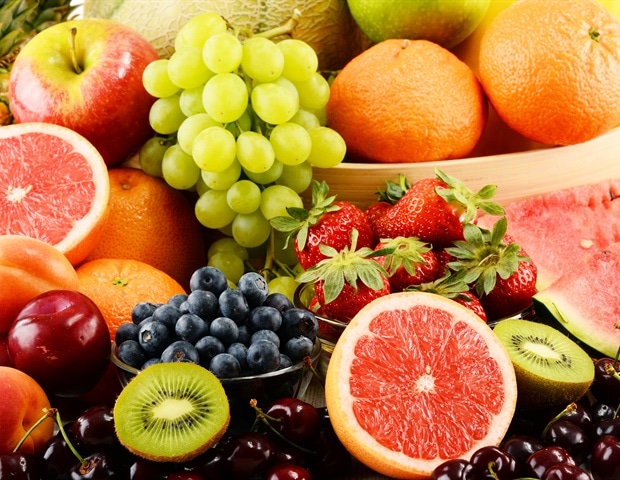
For the primary time, researchers have created genetically modified fruit flies that may turn out to be hooked on cocaine. The flies will self-administer cocaine if given the choice. The brand new mannequin may show immensely beneficial for the event of latest therapies to stop and deal with cocaine use dysfunction, a rising and lethal concern that impacts about 1.5 million folks nationwide.
Heredity strongly impacts the danger of growing cocaine use dysfunction, however the giant variety of genes implicated in dependancy danger has made it tough to find out which is perhaps one of the best targets for therapeutics.
With their new fruit fly mannequin of cocaine use dysfunction, the researchers hope to disclose the biology of dependancy and discover higher therapies a lot sooner than was beforehand doable.
The brand new outcomes are printed in Journal of Neuroscience.
Excessive-flying aspirations
Flies and people react to cocaine in remarkably related methods, says Adrian Rothenfluh, PhD, affiliate professor of psychiatry on the College of Utah and the senior writer on the examine. “At low doses, they begin working round, similar to folks,” Rothenfluh says. “At very excessive doses, they get incapacitated, which can be true in folks.”
Flies and people have lots in widespread relating to dependancy. Flies have about 75% of the human genes which are recognized to be concerned in illness, and the bugs have been instrumental in discovering the underlying biology behind different substance dependencies.
As a result of fruit flies develop rapidly and are straightforward to conduct genetic experiments with, a fruit fly mannequin of cocaine use dysfunction could be a beneficial early step towards growing therapies.
There is only one problem-one very vital distinction between flies and humans-Rothenfluh says: “Flies don’t like cocaine one bit.”
His analysis crew discovered that when given a selection between sugar water and sugar water laced with cocaine, fruit flies constantly selected the drug-free possibility, even once they’d been uncovered to cocaine beforehand. To higher perceive dependancy in people, the scientists wanted to determine why flies would not take cocaine-and if there was a solution to bypass that barrier.
The bitter reality
Travis Philyaw, PhD, first writer on the paper, suspected that the reply may lie within the flies’ sense of style. “Bugs are evolutionarily primed to keep away from plant toxins, and cocaine is a plant toxin,” says Philyaw, now a analysis scientist at College of Washington, who did the analysis as a graduate scholar in Rothenfluh’s lab. “They’ve style receptors on their ‘arms’-their tarsal segments-so they’ll put their hand in one thing earlier than it goes of their mouth, and determine, ‘I am not going to the touch that.'”
By watching how flies’ sensory nerves responded to cocaine, the researchers discovered that the compound strongly prompts bitter-sensing style receptors within the flies’ tarsal segments. When the researchers muted the exercise of these bitter-sensing nerves in order that the flies could not style bitter flavors, they did begin growing a desire for cocaine-laced sugar water over plain sugar water. The dosage was important-flies would solely voluntarily eat cocaine at low concentrations-but they developed a desire remarkably rapidly, inside 16 hours of first publicity.
From bugs to impacts
The researchers say this can assist them perceive dependancy in people. Now that scientists can examine the method in fruit flies, the pipeline to new discoveries could be tremendously accelerated, finding out lots of of probably related genes in a a lot shorter time span.
“We are able to scale analysis so rapidly in flies,” Philyaw says. “We are able to establish danger genes that is perhaps tough to uncover in additional advanced organisms, after which we cross that data to researchers who work with mammalian fashions. Then, they’re in a position to uncover remedy targets that facilitate the soar from finding out animal habits to growing human therapeutics.”
We are able to actually begin to perceive the mechanisms of cocaine selection, and the extra you perceive in regards to the mechanism, the extra you’ve got an opportunity to discover a therapeutic which may act on that mechanism.”
Adrian Rothenfluh, PhD, affiliate professor of psychiatry, College of Utah and the senior writer on the examine
Along with particular searches for therapeutics, Rothenfluh says primary analysis into the mechanisms of how the human mind-and the fruit fly mind-work can have surprising impacts. “Simply attempting to know the straightforward little fly mind may give us insights that you simply can not anticipate,” he emphasizes. “Fundamental science is vital, and also you by no means know what thrilling stuff you may discover that become impactful for understanding the human situation.”
This analysis is printed in Journal of Neuroscience as “Bitter sensing protects Drosophila from growing experience-dependent cocaine consumption desire.”
The work was funded by the Huntsman Psychological Well being Institute, the College of Utah Molecular Medication Program, and the Nationwide Institutes of Well being, together with the Nationwide Institute of Diabetes and Digestive and Kidney Illnesses (grant quantity R01DK110358), the Nationwide Institute on Drug Abuse (grants K01DA058919, R21DA049635, and R21DA040439), and the Nationwide Institute on Alcohol Abuse and Alcoholism (grants R01AA026818, R01AA019536-S1, and R01AA030881). Content material is solely the duty of the authors and doesn’t essentially signify the official views of the Nationwide Institutes of Well being.
Supply:
Journal reference:
Philyaw, T. J., et al. (2025) Bitter sensing protects Drosophila from growing experience-dependent cocaine consumption desire. JNeurosci. doi.org/10.1523/JNEUROSCI.1040-24.2025.

